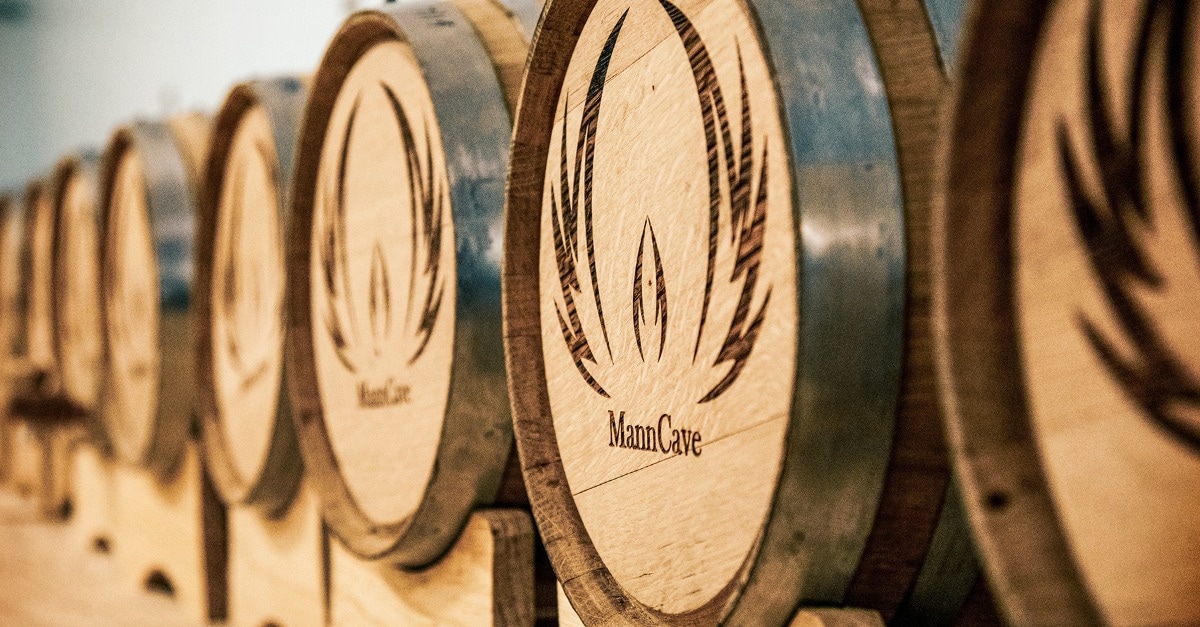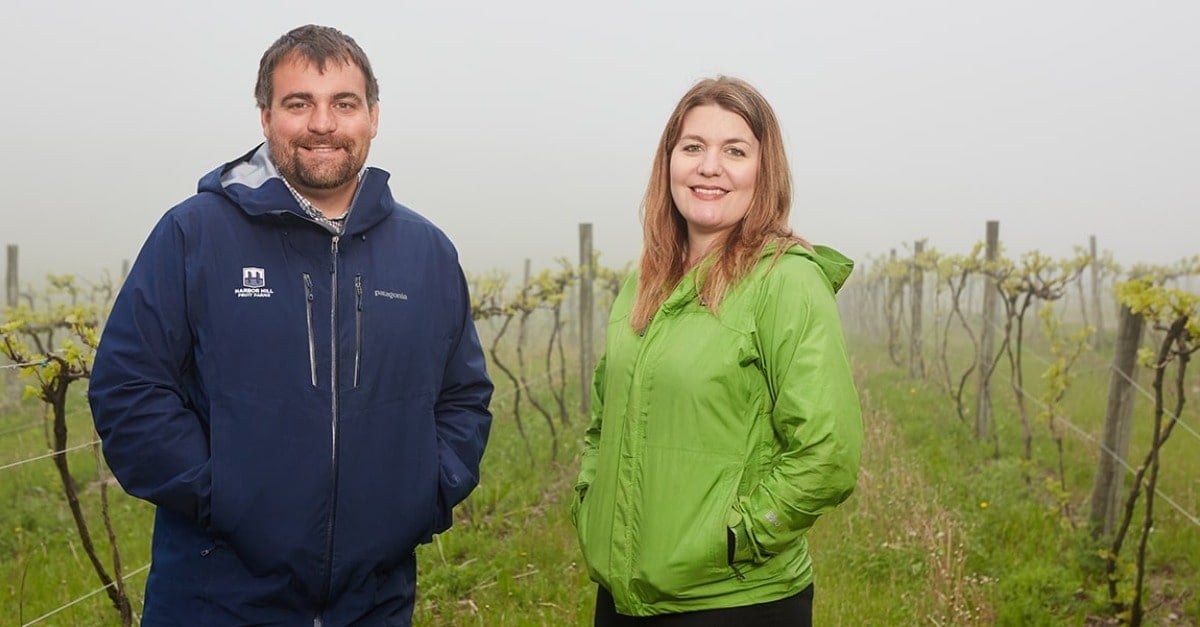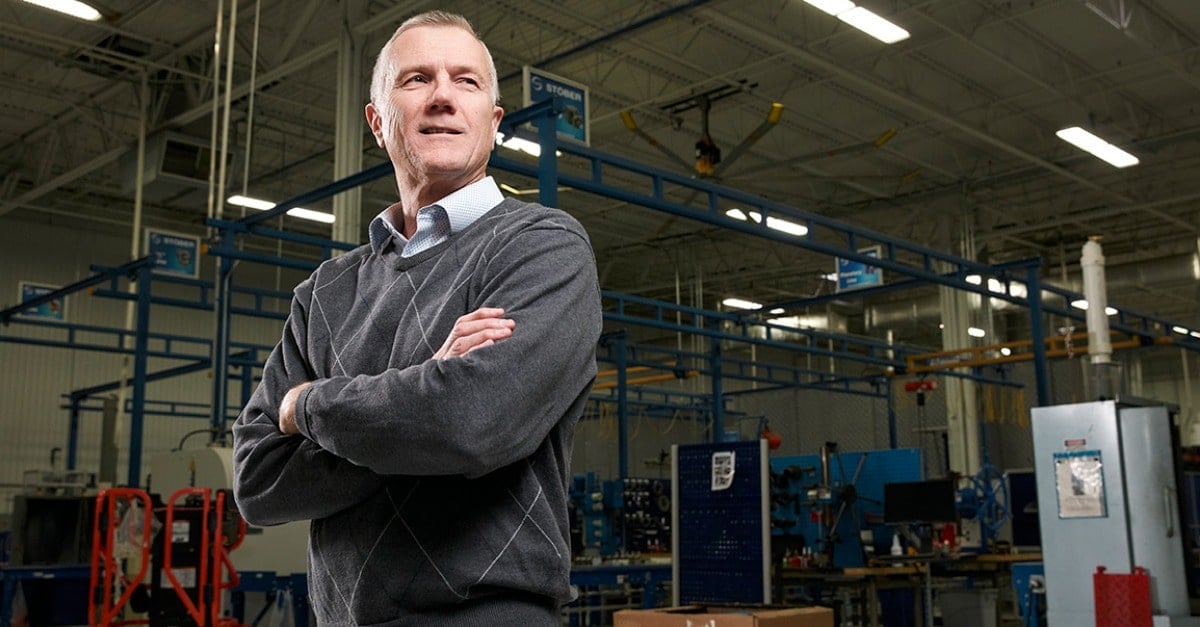(Photo courtesy of Chandler Crowell)
Before building MannCave Distillery with his family, distilling spirits was a hobby for Stephen Mann. He began tinkering with a homemade whiskey recipe after his favorite scotch was discontinued. When he couldn’t find any other brand he liked, Mann started making his own.
When he shared the homemade whiskey with his boss, the advice he received was a little surprising: Quit your job.
“Other people had told me the same thing my boss said. I knew I could make whiskey, but I didn’t realize just how good it was until I started sharing samples,” says Mann. In 2016, prompted by his friends, co-workers, and family, he began turning his hobby into a business.
While Mann hasn’t quit his day job in cybersecurity yet, his family’s West Virginian business has grown over the years into an award-winning distillery with an expanding product line.
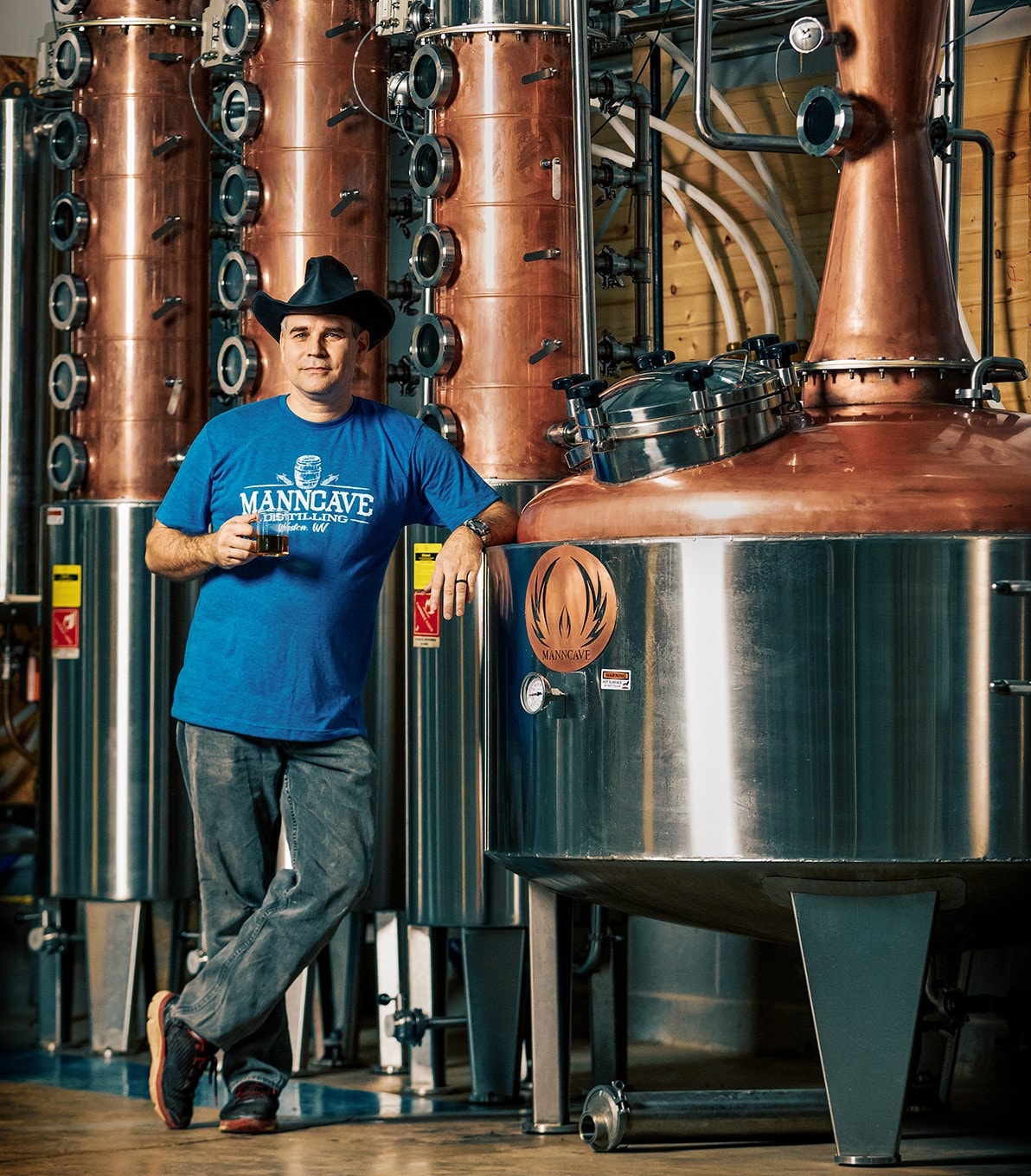
(Photo courtesy of Chandler Crowell)
From the ground up
Mann knew the distillery would need more than a great recipe and his home distilling equipment to succeed. He had the land, a family farm near Weston, West Virginia, and a water source, a mountain spring uphill from the building site. But that was about it.
“Most distilleries aren’t built from scratch anymore, so there were many things nobody could tell me how to do,” says Mann. “We contracted the building and some of the excavation work, but everything else we did ourselves.”
“Everything else” included designing a water system that bypassed two coal mines and filtered iron and other minerals out of the fresh spring water on its way to the facility.
“Our distillery was built with energy cost and efficiency in mind so we can keep our bills low and operate the best we can,” explains Mann.
Growing distribution and winning awards
MannCave Distillery officially opened in December 2018 and produced three spirits: the original whiskey recipe, vodka, and moonshine. But getting MannCave’s products on store shelves was initially a challenge. They had a small distribution footprint in West Virginia in the beginning. Mann and his family traveled across the state, handing out free samples to spark interest in their products.
“Word-of-mouth has been the most successful. We need customers requesting it and store owners talking to each other about it.”
Stephen Mann
MannCave Distillery
Their marketing efforts got a boost at the 2019 San Diego Spirits Festival when MannCave took home a silver medal for their whiskey and a bronze one for their moonshine.
“It was totally unexpected,” says Mann. “But we were able to get our name out in front of so many people and show them we have a great product.”
Since that first entry, they’ve racked up nineteen gold, silver, and bronze medals across their product line at international competitions.
“We’ve won awards with everything we’ve made,” he says. “How many distilleries can say that?” Mann credits their success to their ability to create smooth, clean products thanks to a secret distillation process.
During COVID-19, MannCave Distillery shifted operations temporarily to produce a different, much-needed product: Hand sanitizer.
“We make everything here from local corn, so we were running 24/7 to make alcohol for hand sanitizer,” explains Mann. “I was supporting most of central West Virginia. We’re the only place I know of that never ran out.”
Today, MannCave Distillery has moved back to producing liquor exclusively. Their product line includes whiskey, vodka, gin, moonshine, and rum – the newest offering – and they’ve begun expanding into other states, including Pennsylvania and Florida. Mann says the plan is to someday distribute internationally.
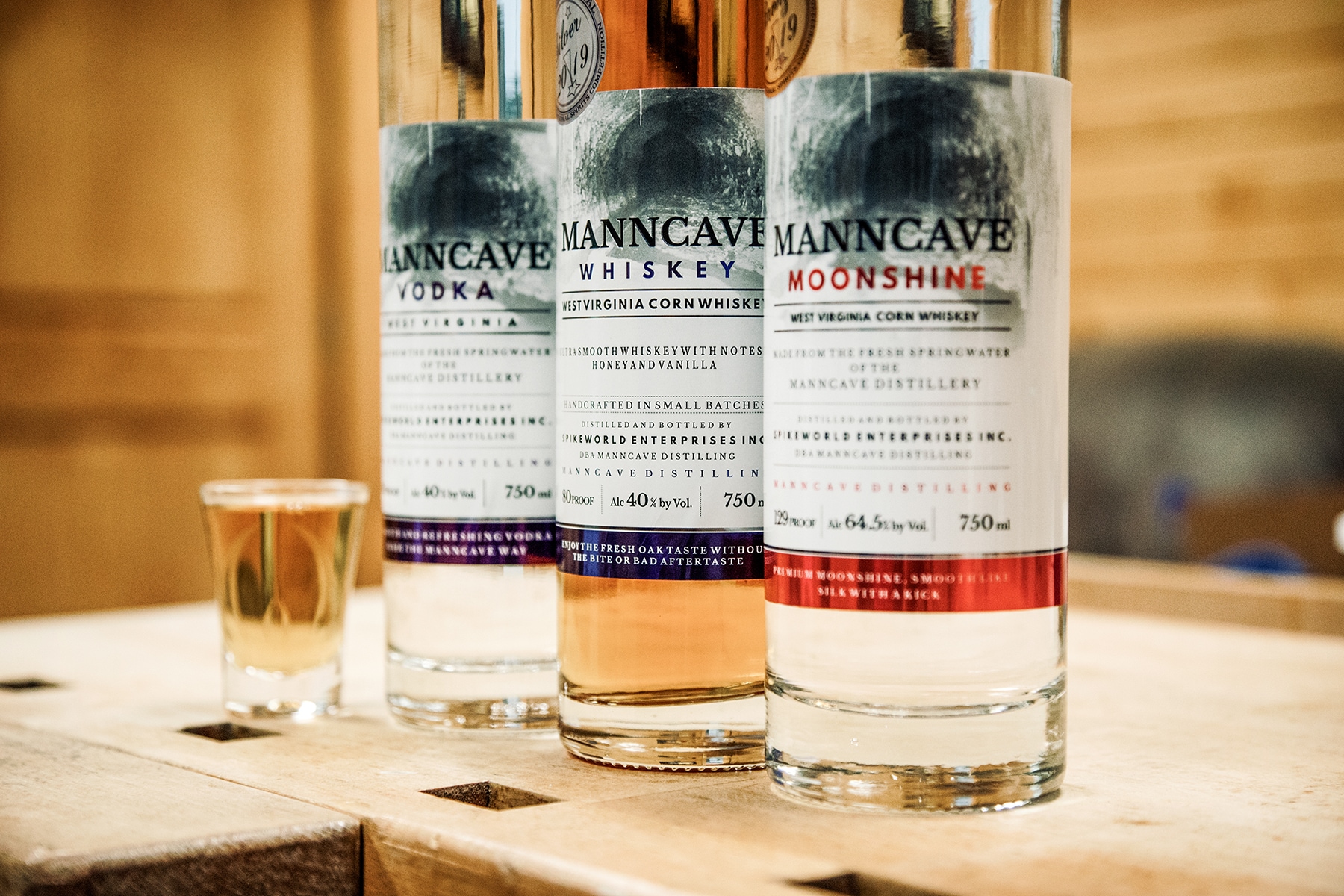
(Photo courtesy of Chandler Crowell)
Proof positive
Mann and his wife Wendy have committed more than $2.5 million of their own money to create and run MannCave Distillery.
“I’ve put my entire life savings and a couple of houses into this,” he says. “I’m all in.”
This self-financing paid for the building and gravity-fed water well construction. But as the distillery established its distribution footprint and production needs, they still needed help purchasing the equipment necessary to produce liquor on a larger scale.
That’s where Huntington stepped in.
“Not long after we registered as a business in West Virginia, I got an email from Huntington asking if we needed funding,” Mann says.
When Mann met with representatives from Huntington, he brought along product samples. “We didn’t just have an idea; we already had a product in hand, and I wanted to show them that,” he explains. “They saw the amount of my own money I had put into the business, so they knew I was serious.”
With Huntington’s financing, Mann purchased stills, a boiler, a forklift, and a bottling system.
“They’ve taken care of us, and I know they’re always going to be there,” he says. “As we continue building this business and bringing our liquors to new people, it means a lot to have a bank like Huntington alongside us.”


